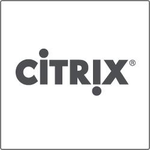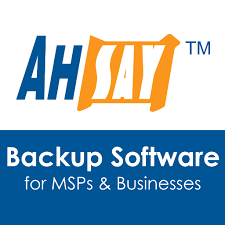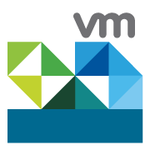Yes, virtual machine software is meant to be available from a variety of devices and platforms, making it a useful tool for users. Virtual machines can be accessed and used on a variety of operating systems, including Windows, Mac, and Linux. Furthermore, virtual machines may be accessed from laptops, desktop computers, and even mobile devices, ensuring a consistent virtual experience independent of device or platform.
List of 20 Best Virtual Machine Software
XenDesktop is virtualization software designed specifically for Windows users. It enables businesses to create a digital workspace that seamlessly integrates data from multiple devices, enhancing productivity and employee engagement. With its advance...Read More XenDesktop
Shells is the software that transforms any web-enabled device into a secure and high-performance desktop computer. Say goodbye to the limitations and risks of traditional computing, as Shells brings convenient and cost-effective access to your person...Read More Shells
QEMU is a versatile and open-source emulator that enables users to run operating systems and applications designed for one architecture on another. It provides complete system and user-mode emulation, and offers the capability to run KVM and Xen virt...Read More QEMU
SecureDoc CloudVM security solution designed to simplify data protection for virtual environments. Featuring advanced encryption and management features, SecureDoc CloudVM empowers businesses to secure sensitive data, no matter where it is stored. Tr...Read More SecureDoc CloudVM
STORServer VMB, backed by IBM Storage Protect, is a robust virtual machine backup and archive solution. Its powerful technology ensures smooth data protection and recovery for virtual environments, simplifying administration and safeguarding critical...Read More STORServer VMB
VMFS Recovery solution for retrieving lost or damaged data from VMware virtual machines. This powerful software effortlessly recovers all types of data, from files and databases to documents and media, from corrupted or inaccessible VMDK and VMFS-for...Read More VMFS Recovery
Amazon EC2 - a versatile and expandable web service offered by AWS. This powerful tool allows you to effortlessly launch virtual servers, called instances, on demand. With a wide range of configurations to choose from, you can easily tailor your comp...Read More Amazon EC2
Parallels Mac Management: solution for seamlessly integrating Mac devices into Microsoft SCCM. This powerful software streamlines IT management by offering advanced features for increased control, security, and efficiency. Enjoy a seamless experience...Read More Parallels Mac Management
Uranium Backup is a backup solution trusted by 100,000 users globally for its cost-effectiveness and dependability. With its extensive features, including file, database, and virtual machine backups, this software ensures utmost security for your dat...Read More Uranium Backup
DMG MORI Virtual Machine is a software that takes process integration, automation, and digital transformation to new heights. With 24/7 availability, this innovative solution offers exclusive content, technical expertise, and optimized peripheral cap...Read More DMG MORI Virtual Machine
Ahsay Backup, a cloud-based backup solution for businesses of any scale. Say farewell to tedious manual backups with Ahsays user-friendly interface, making it easy to safeguard all your virtual machines, servers, desktops, and laptops. With Ahsay, re...Read More Ahsay Backup
Experience the advanced features of VMware vSphere, turning your computer into a high-performing virtual workstation. This software offers extensive performance monitoring, efficient data management, and reliable storage. Boost productivity and mobil...Read More VMware vSphere
Neverfail Workspaces is a solution for uninterrupted business operations. Featuring proactive failover technology, critical applications will always remain operational, offering assurance and reducing downtime. Experience the efficiency of seamless c...Read More Neverfail Workspaces
Meet Virtual Machine Manager solution for seamless virtual machine management. With its intuitive interface and advanced features, it simplifies even the most challenging virtualization tasks. Effortlessly control multiple virtual machines, increase...Read More Virtual Machine Manager
Cherry Servers is a cloud platform designed for developers, offering quick server deployment, flexible hardware choices, and 24/7 support. Our platform is ideal for optimizing performance and seamlessly integrating with DevOps tools at an affordable...Read More Cherry Servers
Lokally.io is a machine translation platform designed to facilitate seamless communication across 111 languages. This software supports a variety of popular file formats, including Word, xlsx, pdf, and ppt, making it the perfect solution for business...Read More Lokally.io
V2 Cloud is a cloud-based solution for efficient data storage and sharing. Our robust software automatically backs up your data in a secure database, while providing a seamless platform for collaboration among multiple users. Enjoy unparalleled bandw...Read More V2 Cloud
Veeam is a backup solution designed to provide reliable data protection for virtualized applications at an affordable cost. Its intuitive interface makes backup and recovery processes quick and hassle-free. With advanced capabilities, such as virtual...Read More Veeam
Microsoft Azure is a ecommerce management platform that is trusted by countless E-commerce businesses. It provides a comprehensive set of resources and capabilities to enhance sales, cater to customer demands, and optimize supply chain operations. Wi...Read More Microsoft Azure
Learn More About Virtual Machine Software
- What Is Virtual Machine Software?
- What Are The Recent Trends In Virtual Machine Software?
- Benefits Of Using Virtual Machine Software
- Important Factors To Consider While Purchasing Virtual Machine Software?
- What Are The Key Features To Look For In Virtual Machine Software?
- Why Do Businesses Need Virtual Machine Software?
- How Much Time Is Required To Implement Virtual Machine Software?
- What Is The Level Of Customization Available In Virtual Machine Software?
- Which Industries Can Benefit The Most From Virtual Machine Software?
- Conclusion
What Is Virtual Machine Software?
Virtual machine software enables users to create and run virtual machines on their PCs. A virtual machine is a simulation of a computer system that includes its own operating system, applications, and hardware. This allows users to run different operating systems or programs on the same physical machine, eliminating the need for additional hardware.
Virtual machine software is very handy for corporations and people that want to test multiple operating systems or software configurations without disrupting their primary system. It also enables users to use legacy software that may not work with their current operating system. There are various virtual machine software solutions on the market, each with its own distinct features and capabilities.
Popular choices include VMware Workstation, Oracle VM VirtualBox, and Microsoft Hyper-V. When selecting virtual machine software, you should evaluate compatibility with your operating system and hardware, convenience of use, and support choices. Virtual machine software also includes capabilities like snapshots, which allow users to record the current state of their virtual machine and return to it at any time.
This might be handy when testing new software or setups because it provides a safety net in case something goes wrong. Some virtual machine software not only creates virtual machines but also provides management tools for monitoring and controlling their performance. This may incorporate features like resource allocation, load balancing, and automatic scalability.
Before selecting virtual machine software, you should examine your individual requirements and determine which features are most relevant for your use case. Reading reviews and comparing different solutions can also assist you in making an informed selection and selecting the finest virtual machine software for your requirements.
What Are The Recent Trends In Virtual Machine Software?
In today's digital landscape, virtual machine software has emerged as a crucial tool for both organisations and people. It allows users to develop and execute numerous operating systems on the same physical hardware, which is convenient, flexible, and cost-effective. As technology advances, so are the trends in virtual machine software.
In this buyer's guide, we'll look at the most recent trends in virtual machine software that purchasers should consider before making a purchasing decision.
1. Cloud Integration: One of the most important trends in virtual machine software is integration with cloud computing. With the increasing popularity of cloud services, virtual machine software suppliers have begun to offer solutions that enable users to quickly access, manage, and install virtual machines on the cloud. This trend provides scalability while also removing the need for costly hardware and infrastructure.
2. Automation: Automation has become synonymous with efficiency, and virtual machine software is no different. The latest trend in virtual machine software is the introduction of automation capabilities, such as auto-scaling and auto-restart, to expedite activities and minimise human mistake. This allows enterprises to optimise their virtual machine settings and increase productivity.
3. Container Support: Containers have been popular in recent years due to their lightweight and efficient design. To stay up with this development, virtual machine software suppliers have begun to embrace containers, allowing users to operate virtual machines and containers on the same physical machine. This integration expands enterprises' flexibility and alternatives for running various applications.
4. Cross-Platform Compatibility: With the rise of remote work, virtual machine software with cross-platform interoperability is becoming increasingly important. The ability to operate virtual machines on many operating systems, such as Windows, macOS, and Linux, enables cross-platform cooperation and quick access to resources from anywhere in the world.
5. Security: As the number of cyber threats grows, security has become a primary responsibility for enterprises. Virtual machine software suppliers are now providing additional security features like encryption and secure network connections to safeguard virtual machines from potential threats. This trend protects the protection of sensitive data and gives buyers piece of mind.
Benefits Of Using Virtual Machine Software
Virtual machine software is essential for both organisations and individual users. It provides a number of advantages, making it an invaluable tool for a variety of applications, including development, testing, and production environments.
Let's explore, the main advantages of adopting virtual machine software.
1. Improved Efficiency And Cost Savings: One of the most significant advantages of virtual machine software is its ability to optimise hardware use and improve efficiency. Businesses that allow many virtual machines to run on a single physical server can save on hardware and energy costs, resulting in significant long-term cost reductions. Furthermore, virtual machines may be readily scaled up or down based on demand, offering flexibility while decreasing resource waste.
2. Enhanced Security And Isolation: Virtual machines provide greater protection for enterprises by isolating distinct environments. This means that if one virtual computer is compromised, the others will be unaffected. Furthermore, virtual computers may be swiftly restored to their original states, lowering the risk of data loss in the event of a security incident.
3. Simplified Testing And Development: Virtual machines are a valuable resource for software developers and testers. They can design and test on many operating systems and environments without requiring separate physical devices, saving time and money. Furthermore, virtual computers may be quickly copied to simulate testing conditions, making it easier to detect and correct mistakes.
4. Simple Software Management And Deployment: Businesses can use virtual machine software to swiftly deploy and manage several virtual machines, minimising administrative work and enhancing productivity. It also facilitates migration between many platforms and operating systems, making software management more efficient.
5. Disaster Recovery And High Availability: Virtual machine software offers enterprises a solid disaster recovery solution. In the event of a disaster, organisations may swiftly restore their systems to their former operational state using virtual machine snapshots and backups. Furthermore, virtual machines can be transferred to other physical servers to increase availability, reduce downtime, and ensure business continuity.
Important Factors To Consider While Purchasing Virtual Machine Software?
Virtual machine software is now a vital tool for both enterprises and consumers. With the growing demand for versatile and flexible computing solutions, virtual machine software provides an ideal option. However, with so many options on the market, it can be difficult for customers to choose the correct one.
To make an informed decision, here are some crucial considerations to consider when selecting virtual machine software:
1. Compatibility With Your Operating System: The first and most important element to check is if the virtual machine software is compatible with your operating system. Check that the program is compatible with the operating systems of the host and guest machines. Otherwise, it will not work properly and you will have compatibility issues.
2. Features And Capabilities: Different virtual machine software has varying features and capabilities. Analyse your requirements and select software that includes the functionality you need. Some important aspects to consider include the capacity to run various operating systems, ease of customisation, extensive networking choices, and support for hardware virtualisation.
3. Pricing: Virtual machine software can range from free to costly. It is critical to evaluate your budget and select software that fits within it. While free software may seem appealing, commercial software frequently provides greater features, support, and performance.
4. User-Friendliness: As a buyer, you want virtual machine software that is easy to use and straightforward. Look for software with a basic and user-friendly interface. Complex software may necessitate technical skills, which can increase the cost and time of deployment.
5. Support And Upgrades: Make sure the virtual machine software you chose provides dependable support and regular upgrades. This is critical in case problems emerge or if you wish to add new features in the future. Some software provides free updates, while others require a subscription; keep this in mind when making your purchase.
6. Security: Security is an important element to consider when selecting virtual machine software. You want your data to be safe and secure, so choose software that includes built-in security measures such as firewalls, encrypted connections, and the opportunity to perform frequent backups.
7. Scalability: Your business requirements are dynamic, and so should your virtual machine software. Consider software that is scalable in terms of storage, memory, and computing power. This ensures that your software can expand to meet the demands of your organization.
What Are The Key Features To Look For In Virtual Machine Software?
As virtualization technology advances and becomes more prevalent, there is a greater requirement for efficient and dependable virtual machine software. Whether you are a business owner wishing to optimise your IT infrastructure or an individual user searching for a flexible and secure environment to run various operating systems on the same machine, selecting the correct virtual machine software is essential. So, what crucial features should you seek for in virtual machine software?
Let us have a look.
1. Compatibility: The first aspect to evaluate is compatibility. The virtual machine software should be compatible with your operating system and hardware requirements. Otherwise, you will be unable to run it smoothly and efficiently.
2. Performance: The performance of virtual machine software is an important issue to consider. Look for software that can manage large workloads and run numerous virtual machines concurrently without slowing down your system.
3. Usability: Another important factor to consider is ease of usage. The software's interface should be straightforward and intuitive, allowing both novices and advanced users to comprehend and use it.
4. Virtual Machine Management: A decent virtual machine software should include comprehensive management capabilities. This includes the ability to construct, clone, and manage virtual machines, as well as management over resource allocation and performance monitoring.
5. Security: Security is a significant requirement for virtual machine software, particularly for enterprises. Look for software that has encryption, network isolation, and other security measures to safeguard your virtual machines against external threats.
6. Cost: The cost of virtual machine software can vary substantially, so carefully investigate pricing and licensing choices. Some software provides a free version with limited functionality, while others demand a one-time payment or a monthly subscription.
7. Support: It's always a good idea to have access to reputable customer service in case you run into any problems or have enquiries while using the software. Look for software that provides full support over many channels, such as live chat, email, and phone.
Why Do Businesses Need Virtual Machine Software?
Virtual machine software is a valuable resource for enterprises of all sizes and sectors. It allows businesses to run numerous operating systems and applications on a single physical server, each in their own isolated environment, or "virtual machine." This virtualisation technology has numerous advantages, including increased efficiency, lower costs, and better overall corporate operations.
We’ll explore why businesses require virtual machine software and how it can benefit your organization.
1. Optimises Hardware Utilisation: One of the key benefits of virtual machine software is that it enables enterprises to fully use existing hardware infrastructure. With traditional physical servers, each operating system and program has its own server, resulting in underutilised hardware and higher expenses. Virtual machines, on the other hand, can be created and maintained on a single server, allowing businesses to make better use of their hardware resources, save money, and increase overall efficiency.
2. Enables Flexible Resource Allocation: Virtual machine software allows enterprises to allocate resources to different virtual machines as needed, resulting in flexibility and scalability. This means that businesses can scale up or down their computing capabilities according on their current requirements, eliminating the need for additional physical servers. This flexibility is especially useful for organisations dealing with shifting workloads or seasonal demand spikes.
3. Enhances Business Continuity: In today's fast-paced business environment, downtime can be extremely costly. Virtual machine software solves this challenge by offering enterprises with high availability and disaster recovery capabilities. In the case of a hardware failure or natural disaster, virtual machines can be swiftly and simply transferred to other servers, resulting in minimum disruption to company activities.
4. Streamlines Software Testing And Deployment: Virtual machines are an excellent platform for enterprises to test and deploy new software applications. With the ability to generate virtual computers with similar configurations, enterprises can simply test several software revisions in the same environment, lowering the chance of errors and downtime. Furthermore, virtual computers are readily copied and deployed, simplifying the total software deployment procedure.
5. Improves Security: In today's digital landscape, organisations must prioritise security. Virtual machine software improves security by isolating each virtual machine from the others and the host server. This implies that if one virtual machine is infected, the others and the host server are not affected, lowering the risk of data breaches and cyberattacks.
How Much Time Is Required To Implement Virtual Machine Software?
When contemplating implementing virtual machine software, it is critical to understand the time and resources needed for a successful implementation. The actual time schedule varies based on the program used and the complexity of the virtual environment, however there are some general recommendations to follow. First and foremost, properly plan and prepare before beginning the installation process.
This includes determining your organization's requirements, selecting the appropriate virtual machine software for your business goals, and developing a comprehensive deployment strategy. The next step is to assess your hardware and networking infrastructure. To ensure that the virtual machines perform effectively, your hardware and network must meet the software's minimum system requirements.
This may need upgrading or restructuring your current systems, which could add a few days to the overall implementation timetable. Once the preparation is finished, the actual installation of the virtual machine software might take anywhere from a few hours to a few days, depending on the size and complexity of the environment. This procedure entails establishing the virtualization platform, installing software, and configuring virtual machines.
After installing the software, extensively test and troubleshoot to confirm that everything works as planned. This can take an extra day or two because it involves testing network and hardware connectivity, as well as finding and fixing any potential problems. Finally, personnel training and knowledge transfer should be considered in the implementation timeline.
Depending on the software's complexity, this could take several days to guarantee your staff is comfortable and proficient in using the new virtual environment. Overall, the development of virtual machine software can take anywhere between a week and a month, depending on the parameters described above. To guarantee a successful implementation, a well-defined plan must be in place, with time and resources allocated, and communication with all stakeholders established.
What Is The Level Of Customization Available In Virtual Machine Software?
Virtual machine software enables users to run numerous operating systems and applications on a single physical computer, making it a cost-effective and efficient way to manage and use computing resources. One of the primary features that distinguishes various virtual machine software choices is the level of customisation available. At its most basic, all virtual machine software enables users to allocate resources such as memory, storage, and processing power to individual virtual machines.
However, the degree to which users can customise these resources and other virtual machine parameters differs greatly across software solutions. Some virtual machine software, such as VMware Workstation and Oracle VM VirtualBox, provide extensive customisation, providing users detailed control over virtual hardware components, network setups, and other advanced options.
This enables users to customise each virtual machine to meet their individual requirements and optimise performance. Some virtual machine software, such as Microsoft Hyper-V and KVM, allow for less customisation. Users can still give resources to virtual computers, but there may be fewer possibilities for fine-tuning virtual hardware and settings.
Furthermore, the extent of customisation in virtual machine software can vary depending on the type of virtualisation employed. Type 1 hypervisors, often known as bare-metal hypervisors, offer a high degree of customisation because they are installed directly on the physical host system. Type 2 hypervisors, often known as hosted hypervisors, are built on top of an operating system and may offer less customisation choices.
When selecting virtual machine software, you should examine the extent of customisation available and whether it meets your specific requirements and use case. For complex virtual environments with multiple operating systems and applications, software with a high level of customisation may be preferable. However, for simpler configurations, software with fewer customisation options may still provide all of the required functionality and versatility.
Which Industries Can Benefit The Most From Virtual Machine Software?
Virtual Machine Software, often known as virtualisation software, has grown in popularity in recent years as more businesses recognise the value of cloud computing. It enables users to create and run several virtual machines on a single physical computer, resulting in a more cost-effective and efficient management and utilization of computing resources. While virtual machines can help a variety of businesses, some stand to benefit the most from this technology.
Let's explore, which industries can profit the most from Virtual Machine Software, as well as what features to look for when selecting the best software for your organization.
1. IT Industry: The IT industry was one of the first to use virtual machine software. With the growing demand for storage and processing power, virtualization software has become an essential tool for IT professionals. It enables them to run various operating systems and applications on the same server, lowering hardware and maintenance expenses. This makes virtual machine software essential for organizations that rely heavily on IT infrastructure, such as data centers, web hosting providers, and software development firms.
2. Healthcare Business: Virtual machine software can also aid the healthcare business significantly. With the increasing use of electronic health records, medical imaging, and other data-intensive activities, healthcare organisations require a dependable, secure, and scalable data management system. They can use virtual machine software to handle several virtual machines for various functions like storing patient records, executing medical software, and hosting web sites. This not only increases efficiency, but also ensures data security and adherence to healthcare rules.
3. Education Industry: Virtual machine software can aid educational institutions like schools and universities. With so many students and staff utilising various software and operating systems, managing and updating individual physical computers may be time-consuming and costly. Virtual machine software enables educational institutions to construct several virtual machines on a single server, giving students and faculty access to the resources they require without the use of actual machines. It also enables seamless and speedy system updates, which reduces downtime and increases productivity.
4. Financial Industry: The financial industry handles sensitive and secret information, so security is a key issue. Virtual machine software provides a secure and separated environment for running financial applications and storing data, lowering the likelihood of data breaches. It also offers scalability, allowing financial organizations to rapidly grow their computing capacity as needed without incurring the additional costs of purchasing physical computers.
5. Government Sector: Virtual machine software has the potential to serve government agencies and departments alike. With tight security requirements, virtualization software provides a secure and isolated environment for sensitive government data. It also enables the rapid deployment and control of virtual machines, making it an excellent choice for government agencies that require fast and efficient computing resources.
Conclusion
In conclusion, selecting the appropriate virtual machine software for your requirements can significantly improve your company or personal computer experience. With so many options on the market, it can be difficult to narrow down the choices. However, by taking into account crucial variables such as compatibility, features, performance, and cost, you can make an informed decision.
Whether you are a beginner or an experienced user, there is virtual machine software that can match your individual needs. There are numerous options available, ranging from the popular and user-friendly Oracle VM VirtualBox and VMware Workstation to the complex and enterprise-level solutions such as Microsoft Hyper-V and Promax VE. Remember to thoroughly consider your demands and priorities the things that are most important to you.
Do not be fooled by marketing jargon or unneeded add-ons. Instead, concentrate on the features that will boost your productivity and efficiency. Finally, don't overlook the licensing and pricing aspects, as they might have a considerable impact on your finances. Look for versatile and cost-effective choices that will provide value in the long run. By following these rules and taking into account the advice provided in this buyer's guide, you can confidently select the virtual machine software that best meets your requirements. Happy virtualizing!
Virtual Machine Software FAQ's
Can Virtual Machine Software Be Accessed Across Multiple Devices And Platforms?
Is Virtual Machine Software Future-Proof And Adaptable To Emerging Technologies Like AI, Blockchain Or IoT?
Yes, virtual machine software is future-proof and adaptable to upcoming technologies like artificial intelligence, blockchain, and the Internet of Things. As technology advances, virtual machine software companies update and improve their platforms to embrace newer technologies.
Businesses and organisations may now smoothly integrate and use cutting-edge technologies without worrying about compatibility difficulties. Virtual machine software is extremely flexible and scalable, making it ideal for adapting to new technologies.
Is There A Free Trial Offered To Assess Virtual Machine Software Before Committing?
Yes, most virtual machine software provides a free trial period in which customers can evaluate its features and capabilities before making a commitment. This allows consumers to test the software and see if it fulfils their requirements and preferences. Free trials often last 14 to 30 days and include full access to the software's functionality. It is an excellent opportunity to evaluate the product and make an informed decision about whether or not to purchase the complete edition.
Does Virtual Machine Software Offer Data Security Features And Meet Regulatory Compliance Standards?
Virtual Machine Software is intended to provide a secure environment for executing various operating systems on the same computer. It provides data security features such as encryption, firewall protection, and secure virtual networks to safeguard critical information against cyber threats.
Furthermore, most virtual machine software adheres to regulatory requirements, guaranteeing that your data is managed in accordance with industry rules and guidelines. This makes it an excellent alternative for enterprises and organizations that must meet stringent regulatory standards.
Can Virtual Machine Software Integrate Seamlessly With Existing Tools And Platforms?
Yes, virtual machine software can work perfectly alongside existing tools and platforms. Most common virtual machine technologies, such as VMware and VirtualBox, can interact with a variety of operating systems, tools, and applications.
This enables easy collaboration and compatibility with existing systems. Furthermore, virtual machines can be configured to access and use resources from the host system, which improves the integration of the virtual environment with current tools and platforms.






















